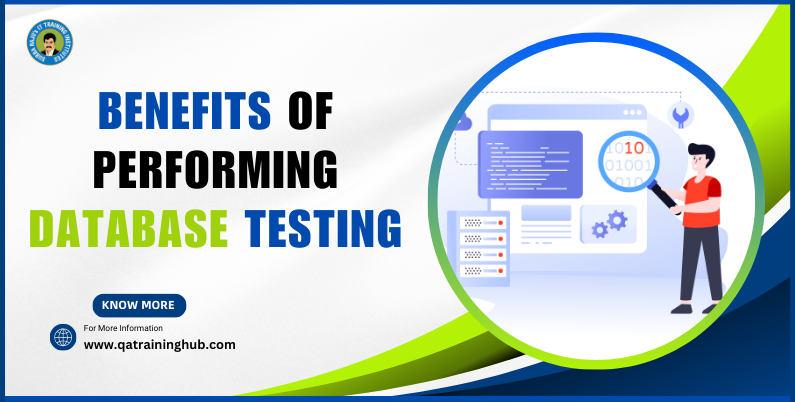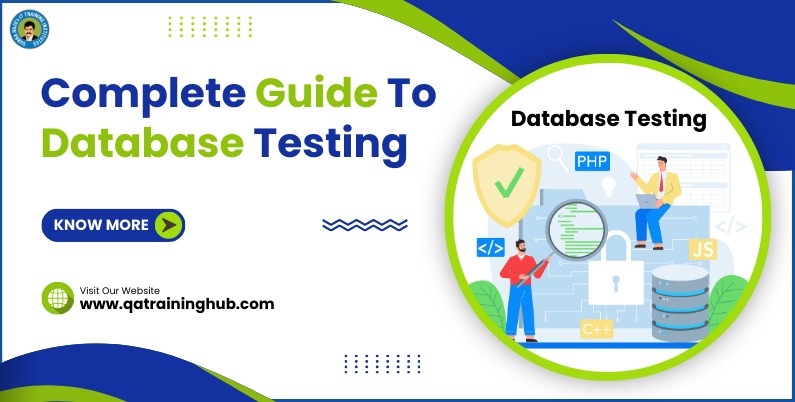
Exploring the Key Advantages of Database Testing
In software development, it’s crucial to make sure that databases are reliable, secure, and efficient. Whether you’re working on a small-scale application or a big business system, the accuracy of the data stored in databases is important for smooth software functioning. That’s where database testing steps in. It provides a range of benefits that greatly improve the quality of applications and systems. In this guide, we’ll explore the Benefits of Performing Database Testing
Introduction to Database Testing
Database testing is a systematic process to checking and confirming the functionality, speed, and security of a database management system (DBMS). It includes running various tests to uncover possible problems like data errors, inconsistencies, slow performance, and security weaknesses. Through thorough database testing, companies can reduce risks, improve performance, and make sure they meet regulatory requirements.
Benefits of Performing Database Testing
Data Accuracy and Integrity:
Database testing is crucial for making sure that the data stored in the system is accurate and reliable. It carefully checks data inputs, updates, and retrievals to spot any mistakes or differences, which strengthens the integrity of the database.
Improved Data Quality:
High-quality data is essential for making smart decisions and running a business smoothly. Database testing helps improve data quality by finding and fixing mistakes, duplicates, and differences, which creates a dependable data setup.
Enhanced Performance:
Slow performance in databases can really slow down how well an application works and how users experience it. Performance testing helps database testers find and fix problems like slow searches, indexing that doesn’t work well, and not having enough resources. This makes the database work better for smooth operation.
Data Security and Compliance:
In today’s world, where data privacy rules are strict and cyber threats are on the rise, keeping data secure is a must. Database testing is key in finding security weaknesses like unauthorized access, SQL attacks, and data leaks. This helps organizations strengthen their defenses and ensure compliance with regulatory standards.
Scalability and Reliability:
As companies expand and develop, it’s crucial that their databases can handle more work and remain dependable. Database testing helps assess if a database can grow smoothly by simulating different amounts of work and checking if it can handle more data and user actions without slowing down or becoming untrustworthy.
Cost Savings:
Identifying and and fixing database problems early on during development or deployment can save a lot of money. By dealing with slow performance, data mistakes, and security issues upfront, companies can avoid expensive outages, losing data, or getting fined for breaking rules. This helps them use their resources better and spend less on running things.
Improved Decision-Making:
Having dependable and accurate data is essential for making smart decisions at all levels of a company. Database testing makes sure that people making decisions can rely on the data they have, knowing it’s accurate and consistent. This gives them the confidence to make strategic choices.
Customer Satisfaction:
In today’s highly connected world, where customer satisfaction is key, the performance and reliability of database-driven applications directly impact customer satisfaction. By conducting thorough database testing, organizations can identify and address issues that may affect application usability, responsiveness, and dependability, thus improving the overall customer experience.
Regulatory Compliance:
As data protection regulations like GDPR, HIPAA, and CCPA become more widespread, following the rules has become crucial for organizations dealing with sensitive information. Database testing checks if the way data is handled and protected meets these regulations, so companies can avoid big fines and damage to their reputation from not following the rules.
Streamlined Development Process:
When database testing is included in software development from the beginning, it encourages a culture where quality and responsibility are valued. By finding and fixing database problems early on, teams can speed up software deployment, reduce the need for redoing tasks, and deliver excellent products to customers more quickly.
Conclusion:
In today’s software development, where getting things right the first time is crucial, QA Training Hub shines as a leader in providing high-quality training. As we conclude our discussion on the benefits of performing database testing, it’s clear that QA Training Hub is dedicated to giving professionals the skills they need to succeed and drive innovation across industries.
At QA Training Hub, we know that being proficient in database testing isn’t just useful—it’s a wise choice. Our training courses are customized to meet the demands of the changing industry, providing aspiring QA professionals with the expertise, resources, and hands-on practice they need to succeed in this area.
With the assistance and direction from QA Training Hub, From the benefits of performing database testing both individuals and businesses can elevate their database testing skills to new heights.This creates new chances for growth, productivity, and doing great work.Let’s work together to shape a future where quality is important and Every line of code reflects our strong commitment to excellence.
Join QA Training Hub today, and let’s show the way for a brighter tomorrow, powered by precision, proficiency, and passion for quality.


